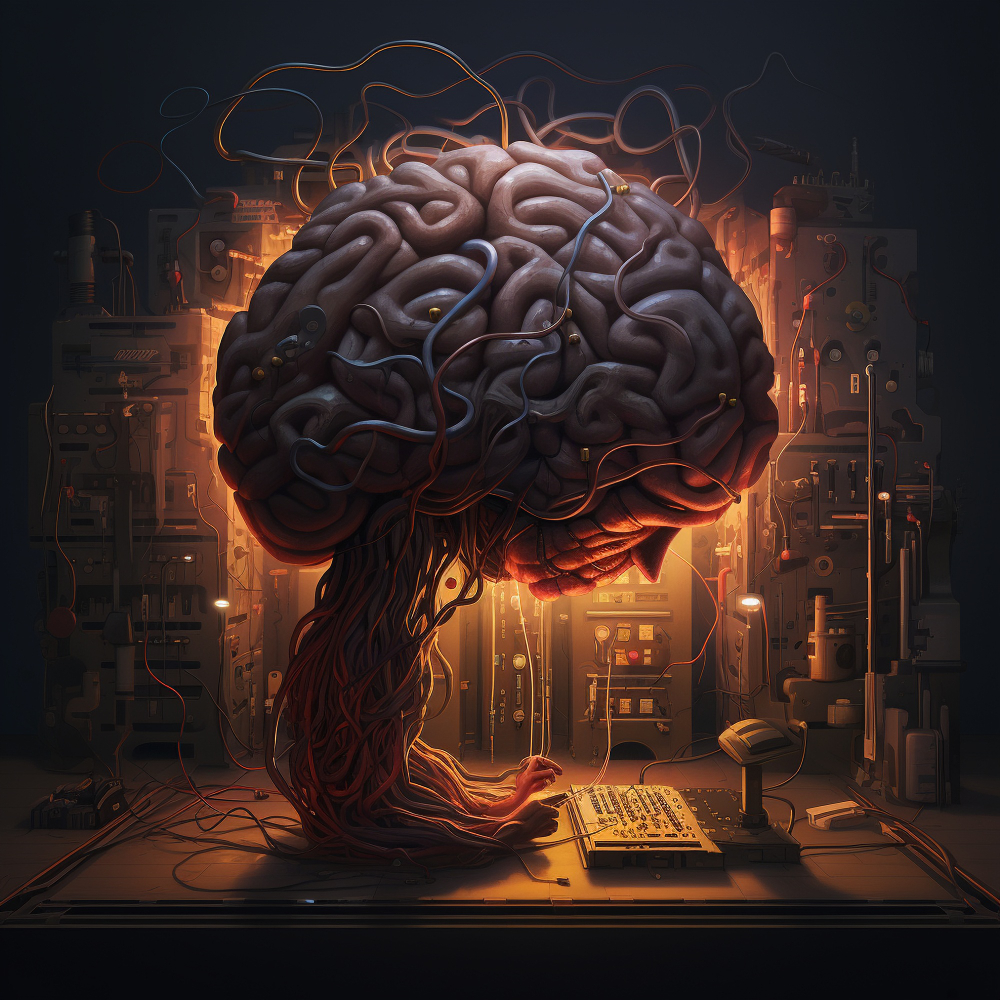For decades, a popular myth has lingered in the collective consciousness, suggesting that humans only utilize a mere 10% of their brain capacity. But how accurate is this claim? Recent advancements in neuroscience have aimed to debunk misconceptions and provide a clearer understanding of our brain’s potential. Let’s dive into what science says about the percentage of our brain we really use.

Image by: Freepik.com
Table of Contents
The Origin of the 10% Myth
The origin of the 10% myth is somewhat of a mystery, with no single source pinpointed as the culprit. It may have been a misinterpretation of neurological research in the early 20th century or a piece of motivational rhetoric to imply that many people have untapped potential. Regardless, this myth has been popularized by media and is widely believed.
The Reality According to Neuroscience
Modern neuroscience has unequivocally debunked the 10% myth. Brain imaging technologies, such as MRI and PET scans, illustrate that much more than 10% of the brain is active, even during simple tasks. Brain activity varies depending on the task being performed, but no area is completely inactive.
The 100% Brain
In reality, we use virtually every part of our brain, and most of the brain is active almost all the time. The brain represents around 3% of the body’s weight but uses 20% of its energy – a testament to its efficiency and activity level. Neuroscience has demonstrated that each part of the brain has a known function. From processing complex thoughts and emotions to performing basic life functions, the brain’s diverse areas are constantly at work.
Neuroplasticity: The Brain's Ability to Adapt
An important concept in understanding brain utilization is neuroplasticity – the brain’s ability to form and reorganize synaptic connections, especially in response to learning or experience or following injury. This adaptability reflects the brain’s capacity to use different areas for various functions over time, depending on what is needed for any given task.
The Brain: An Energy Dynamo - Unpacking Its Voracious Appetite for Power
The human brain, despite comprising only about 2% of the body’s weight, is a remarkable energy hog, using up to 20% of the body’s total energy reserves. This high energy demand is due to the brain’s critical and complex functions.
1. Neuronal Activity: Most of the energy consumed by the brain powers the billions of neurons it contains. These neurons communicate via electrical impulses and chemical signals, processes that are energy-intensive. Maintaining the resting potential of neurons and the firing of action potentials (the electrical impulses that travel along neurons) are primary energy consumers.
2. Synaptic Activity: When neurons communicate, they release neurotransmitters across synapses (the tiny gaps between neurons). Reuptaking these neurotransmitters and reusing or recycling them is an energy-demanding process.
3. Maintenance of Ion Gradients: Neurons function by maintaining a difference in concentration of ions (like sodium, potassium, and calcium) across their cell membranes. This is crucial for the generation of action potentials. The restoration and maintenance of these ion gradients after each action potential require a lot of energy, carried out by ion pumps in the neuron cell membrane, especially the sodium-potassium pump, which uses ATP (the cell’s energy currency) to operate.
4. Glial Cells: Brain energy consumption is not solely the domain of neurons. Glial cells, which provide support, nutrition, and insulation for neurons, also consume a significant amount of energy. For instance, astrocytes facilitate the delivery of glucose from the blood to the neurons, a process that requires energy.
5. Brain Metabolism: The brain mainly uses glucose as its source of energy, metabolized from food. The conversion of glucose to ATP (adenosine triphosphate), which neurons use for energy, is a complex process that, again, uses energy itself. Oxygen plays a critical role in this metabolic process, which is why blood flow to the brain is crucial for its energy supply.
The disproportionate energy use by the brain is not just for active thinking, moving, or sensing, but a lot of it goes toward the basic maintenance of neuronal health and the restoration of ion balances after signaling. Even “at rest,” when we are not engaged in any specific mental task, the brain is remarkably active, working on tasks like memory consolidation, and regulating internal processes.
Understanding why the brain uses so much energy helps underline the importance of a nutritious diet, adequate sleep, and overall health: these factors directly impact our brain’s function by influencing its energy supply. So, the next time someone mentions “brain power,” it’s quite literal — the brain’s impressive cognitive abilities are matched by its considerable appetite for energy.
Unlocking Your Mind's Full Potential: Effective Strategies for Improving Brain Function
Improving brain function is a multifaceted endeavor that blends lifestyle adjustments, dietary changes, mental exercises, and sometimes, supplementation to enhance cognitive abilities, memory, focus, and overall mental well-being. Optimizing brain health is crucial not just for intellectual pursuits but for maintaining mental agility into old age.
Here’s a detailed approach to boosting brain function:
1. Nutrition
A balanced diet plays a pivotal role in brain health. Consuming a variety of foods ensures the brain gets the necessary nutrients it needs to function optimally.
- Omega-3 Fatty Acids: Found in fish like salmon, these fats are crucial for brain health, supporting memory and learning.
- Antioxidants: Blueberries, dark chocolate, and nuts are rich in antioxidants, which protect the brain from oxidative stress.
- Whole Grains: They release glucose slowly, providing a steady energy supply to the brain.
- B Vitamins: Leafy greens, legumes, and whole grains are rich in B vitamins, crucial for brain aging and mood regulation.
2. Physical Exercise
Regular physical activity improves circulation, delivering more oxygen and nutrients to the brain. It also fosters the release of beneficial proteins in the brain tissue, aiding the growth of neural cells.
- Aerobic Exercise: Activities like walking, swimming, or cycling are particularly effective for brain health.
- Strength Training: It has been linked to improved cognitive function, particularly in older adults.
3. Mental Exercise
Just as physical exercise strengthens the body, mental exercise can fortify the brain, making it more resilient against age-related decline.
- Puzzles and Games: Crossword puzzles, Sudoku, and memory games can enhance problem-solving skills and delay cognitive decline.
- Learning New Skills: Whether it’s a new language, instrument, or hobby, learning stimulates the brain, building new neural connections.
4. Adequate Sleep
Sleep is critical for brain health. It is during sleep that the brain consolidates memories, clears toxins, and repairs itself.
- Quality and Quantity: 7-9 hours of good quality sleep is ideal for most adults.
- Sleep Hygiene: Maintaining a regular sleep schedule, limiting screen time before bed, and ensuring a comfortable sleeping environment can improve sleep quality.
5. Stress Management
Persistent stress can damage the brain. Therefore, managing stress is essential for maintaining brain health.
- Mindfulness and Meditation: These practices can reduce stress and improve concentration and memory.
- Hobbies and Socialization: Engaging in leisure activities and maintaining social connections can help reduce stress levels.
6. Hydration and Moderation
- Water: Staying adequately hydrated is essential for maintaining concentration and cognitive function.
- Moderation in Alcohol and Caffeine: While moderate coffee consumption can have beneficial effects on the brain, excess alcohol and caffeine can have detrimental impacts.
7. Supplements
- Fish Oil: For those not getting enough omega-3 from their diet.
- Curcumin: Has potential neuroprotective benefits.
- Ginkgo Biloba: May improve cognitive function, though evidence is mixed.
Improving brain function involves a holistic approach, integrating physical health, mental exercise, proper nutrition, and stress management. Making these practices a part of daily life can lead to significant improvements in cognitive function and overall well-being. Always consider consulting with a healthcare professional before making significant lifestyle changes or starting new supplements.
Conclusion
Maximizing Our Brain’s Potential — In debunking the myth that we only use 10% of our brain, science does not minimize the brain’s incredible potential for growth and learning. Instead, it highlights the complexity and versatility of the human brain. By engaging in varied and challenging mental activities, we can stimulate our brains, promote neuroplasticity, and perhaps even enhance cognitive capabilities.
A lifestyle that includes mental exercise, physical activity, proper nutrition, and sufficient sleep can support brain health and optimize its functions. So, while the notion of using only a fraction of our brain’s capacity is a myth, the real takeaway is the limitless potential that lies in fully utilizing and nurturing this extraordinary organ.
We use more than 10% of our brain—indeed, we use virtually all of it. Far from being a sign of limitation, this understanding opens up a world of possibilities for human potential and achievement. Dispel the myth, and embrace the true capability of your brain.
FAQs: Unveiling the Brain's Potential: How Much Do We Really Use?
The popular myth suggests we only use 10% of our brains, but scientific research demonstrates that we utilize virtually all parts of the brain. Various tasks and activities engage different areas, meaning the brain is actively working even during seemingly simple tasks.
Intelligence isn’t about using more of the brain at a single moment but rather how efficiently different areas of the brain communicate and work together. Enhancing neural connections can improve cognitive functions, but it doesn’t equate to using a larger portion of the brain.
While we may not have ‘hidden’ areas of the brain, we can certainly enhance its functionality. Practices like learning new skills, exercising, and maintaining a healthy diet can improve brain health and cognitive performance, potentially unlocking higher levels of mental performance.
Instead of underused parts, there are more specialized areas that might not be engaged as frequently, depending on a person’s activities and lifestyle. However, the brain is highly adaptable and capable of learning and evolving, meaning we can strengthen underutilized areas through targeted activities and training.
Enhancing brain function involves a combination of physical exercise, mental challenges (like puzzles or learning new skills), social interaction, and proper nutrition. Additionally, ensuring adequate sleep and managing stress through meditation or mindfulness can significantly benefit brain health.
Brain games can improve specific cognitive skills, such as memory, attention, and problem-solving. However, their effect on overall intelligence is still a subject of ongoing research. The key is to engage in a variety of intellectually challenging activities to support brain health and cognitive function.
Genetic factors do influence the structure and function of our brains, and thus some aspects of intelligence and cognitive potential. However, environment, lifestyle, and education also play crucial roles in shaping our brain’s capabilities. Everyone has the potential to enhance their cognitive abilities through continuous learning and brain-healthy practices.




























